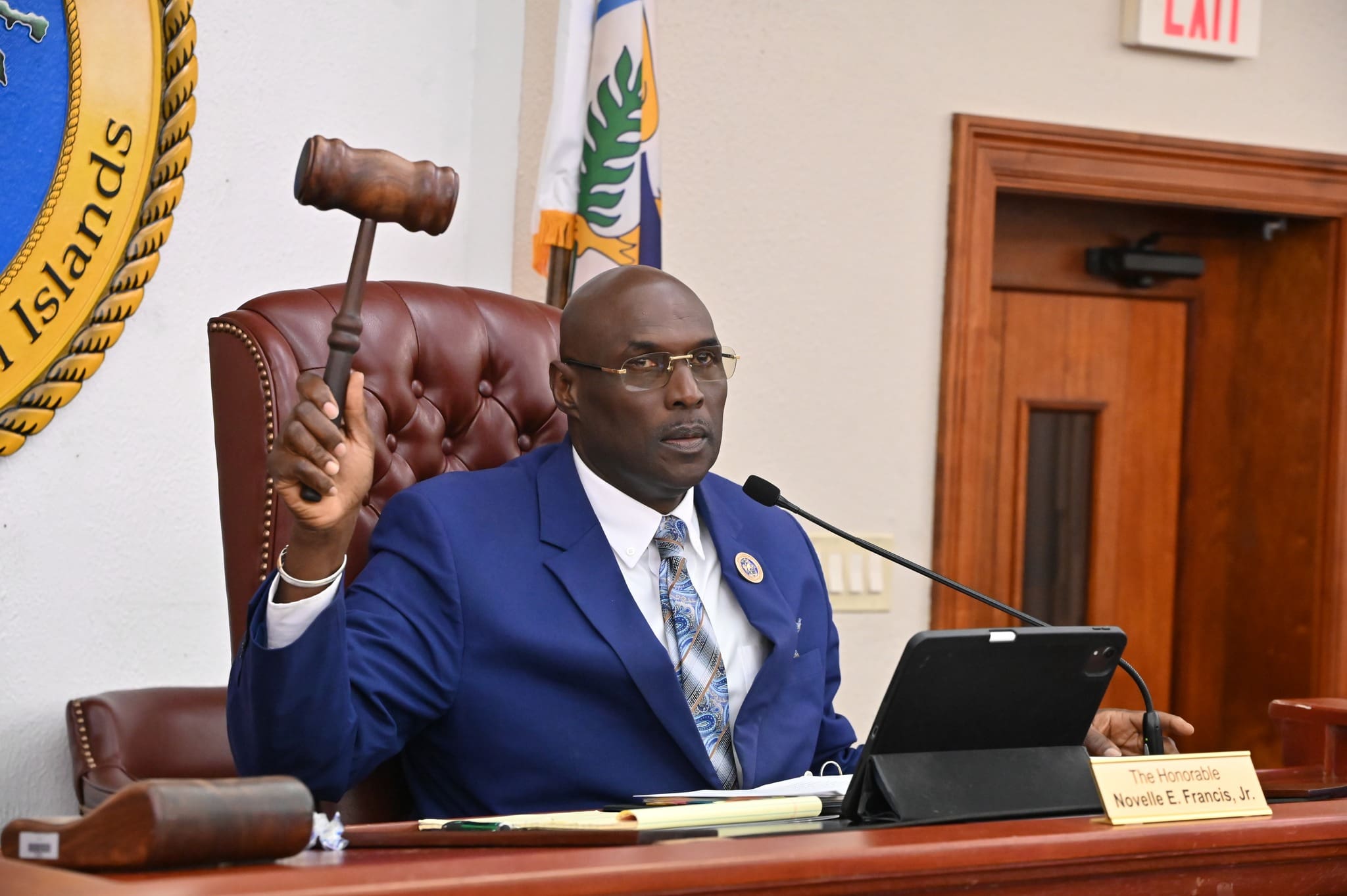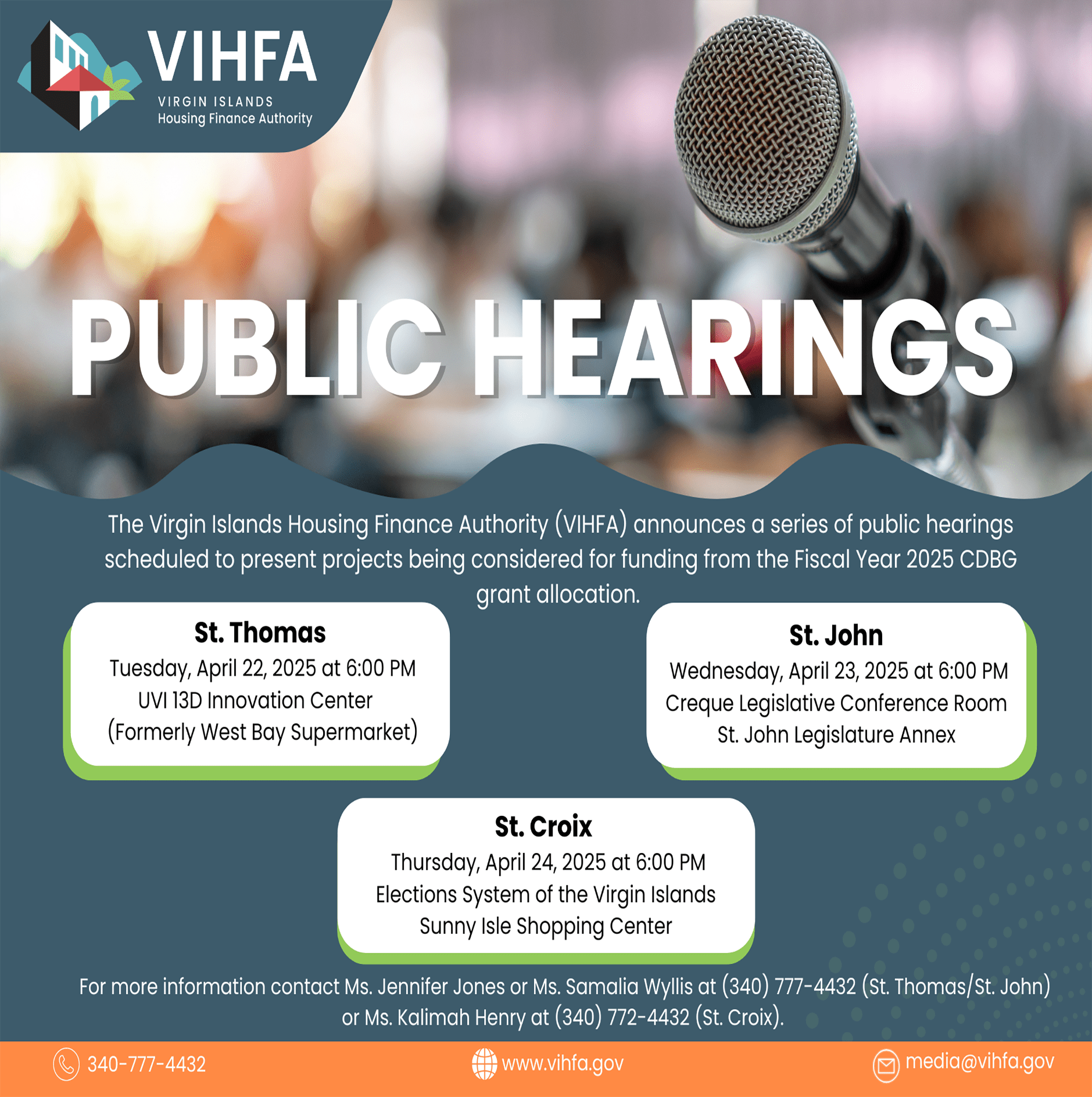
The Senate Committee on Budget, Appropriations and Finance decided to hold three bills Tuesday, including one that would offer tax relief to property owners who the government owes money.
Senate President Milton Potter sponsored the bill, which initially called for the Office of the Lieutenant Governor to offset a property owner’s property tax liability against any amount of money that the Virgin Islands government owed to that property owner. The amended version discussed Tuesday would require the government only to offset retroactive wages.
Potter said the bill was inspired by a friend’s mother, who owes the government approximately half what the government owes her in retro pay.
“A legitimate obligation — as a public sector employee, she was owed over $30,000, and she was in jeopardy of losing her property because she owes the government $15,000 … doesn’t seem fair, doesn’t seem just,” he said.
Tax collector Brent Leerdam testified that OLG had serious misgivings about the bill, highlighting, among other concerns, the difficulty of verifying the amount owed to property owners.
“Moreover, it is our position that the offset allowed under this bill does not directly address the issue facing this government in the administration of its fiscal obligations — which is that there is a shortfall in overall revenue collection in the territory, due in large part to inflation and the rising cost of living,” he said. Leerdam said the government’s focus should remain “the enhancement of revenue collections.”
Leerdam also noted that the government owes substantial amounts to labor unions, vendors and contractors.
“If real property taxes owed is used to offset these debts, this could result in a huge reduction in revenue generated by this government,” he said, “which would adversely affect services provided by the government.”
Lawmakers also considered a bill put forward by Sen. Alma Francis Heyliger that would raise the cap on damages against the Virgin Islands government from $25,000 to $150,000. Francis Heyliger said the maximum amount hasn’t changed in four decades.
“You could run them over with a car, and they can’t get more than $25,000,” she said. “There could be an incident where somebody’s shot, and they can’t get more than $25,000. There could be an incident where somebody’s house got accidentally burned down, and our maximum liability is $25,000 based on the laws of this land.”
Lawmakers generally agreed that the maximum amount is due for an increase but seemed hesitant to move forward without testimony from the V.I. Justice Department. Senate Majority Leader Kurt Vialet said they needed to look at data regarding the number of judgments against the government and noted that in this year’s budget, only a quarter of a million dollars was allocated to pay judgments over $25,000.
Vialet said he’d likely support an increase but called $150,000 too steep for the amount of money allocated to pay damages.
“Because once again, we would probably be doing something on paper that is not going to be funded by the government of the Virgin Islands,” he said.
Separately, lawmakers unanimously voted to hold a lease agreement between the Virgin Islands government and the National Oceanic and Atmospheric Administration for a portion of the telecommunications tower in Estate Nazareth.
Assistant Property and Procurement Commissioner Vincent Richards explained that the agreement will help NOAA and the local government collect atmospheric data in the territory to provide “an optimum weather broadcast and emergency broadcast system, keeping them informed and prepared for the never-ending environmental changes affecting the area.”














